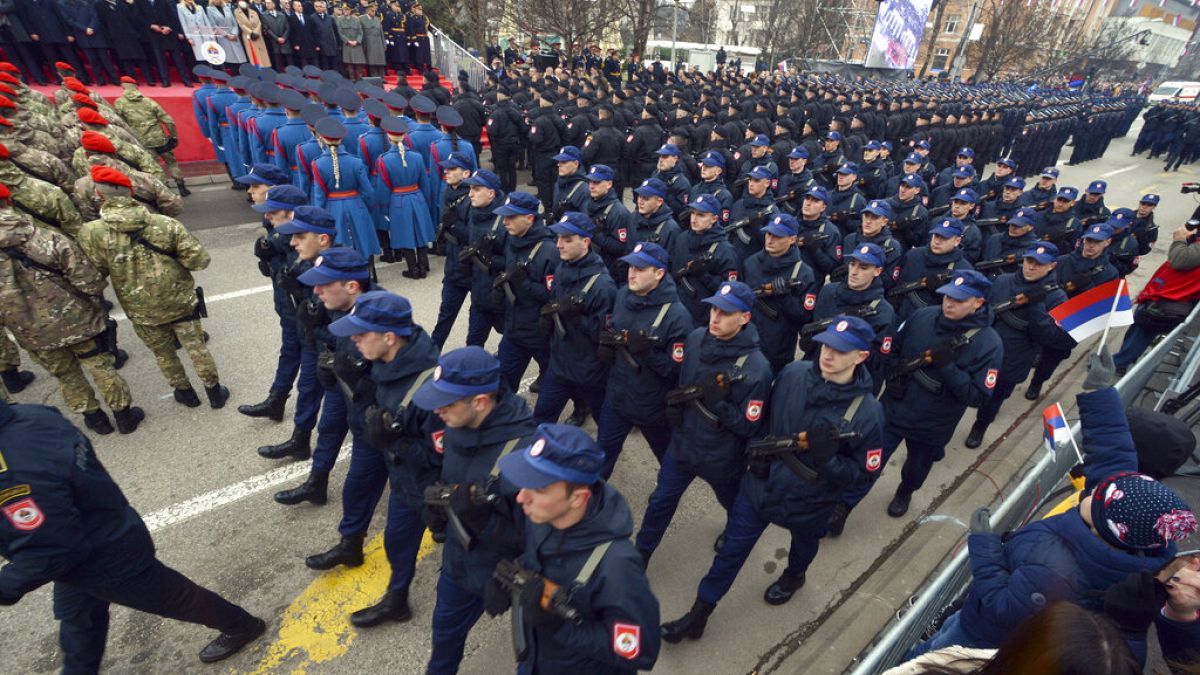The Serb political leader Milorad Dodik’s increasingly aggressive rhetoric along with his plans to start withdrawing from the Bosnian government has cast a large shadow over this year’s banned holiday.
The 30th anniversary of the Bosnian entity of the Republika Srpska is being marked amid a serious political crisis in the country.
It follows a fear of a return to the dark years of the 1990s inter-ethnic war over secessionist aims.
The Serb political leader Milorad Dodik’s increasingly aggressive rhetoric along with his plans to start withdrawing from the Bosnian government has cast a large shadow over this year’s banned holiday.
The holiday was deemed to be unconstitutional by the country's Constitutional Court in two separate cases due to it being observed on an Orthodox Christian saint day, excluding the other two main ethnic groups, Bosniaks and Croats.
At the commemorative event on Saturday evening, Milorad Dodik, Serb member of Bosnia's tripartite presidency said, "Every national movement, and ours too, has a single goal, which is to build a people's state, namely its own state."
"So the doubt whether it is possible should never affect the minds of us Serbs and other people living in Republika Srpska. Because it is really possible," Dodik went on.
The Republika Srpska, or the RS, is one of the country's two entities or administrative units, defined in 1995 as the US-sponsored Dayton Peace Accord -- parts of which double up as the country's constitution -- stopped the bloody 1992-1995 war.
The political system created by the peace accord -- thought to be one of the most complicated in the world -- comes with an umbrella central government, but its power is hugely limited because all national actions require a consensus from all three ethnic groups.
Bosnia and Herzegovina has a bicameral legislature and a three-member presidency made up of one member from each of the three major ethnic groups.
Tensions in the country have been steadily increasing since Dodik announced his plans to withdraw from the country's central institutions, including the army, the judiciary, and the tax systems -- a move that drew criticism from the international community while also questioning the legality of such actions.
But celebrations continued over the course of three days, despite the holiday's domestic ban and fresh sanctions from the US.
